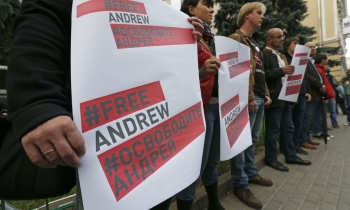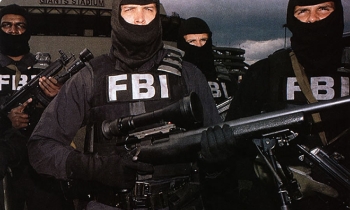In our time, journalism's credibility has taken some big hits, most notably from criticism and attacks arising out of fabricated stories, exemplified by two notorious malefactors - Janet Cooke of The Washington Post in the early '80s and more recently, Jayson Blair of The New York Times. But the cycle of deception wasn't confined to two of the nation's most important newspapers. It entangled others, including USA Today, The Boston Globe, The New Republic, and the news divisions of CBS and NBC, in its crippling grasp.
These have been disquieting times for people within journalism and those outside who understand the critical functions of a free press in a democratic society, who worry that its discrediting represents a real danger to the republic.
But out of the terrible tragedy of Hurricane Katrina, journalism may have realized its finest hour since The New York Times' published the Pentagon Papers, and Bob Woodward and Carl Bernstein's courageous reporting in The Washington Post led to the downfall of the Nixon administration.
As the story of Katrina unfolded on television, the nation saw pictures of unbelievable destruction, people in panic, people on rooftops, dead people floating in what once were city streets, while against the horrors of this unfolding scene they saw more than 100,000 other people, mostly poor and mostly black, who desperately needed safe havens.
While this played out before our eyes there came the daunting realization that government at all levels had failed - and had failed utterly. A judgment that stands against the city of New Orleans and its mayor, against the state of Louisiana and its governor, and against the U.S. government and our president.
The words of reassurance the government in Washington attempted to convey might have been the last words except for the reality check provided by America's media - from television and radio to print journalism. Unlike the government in Washington, journalists were on the job, they were actually in New Orleans and Mississippi, they were there with the people most grievously affected, often hand-in-hand, hug-by-hug, providing what little relief and hope that existed.
As this terrible story played out before our eyes, journalism represented the one sure levee that would hold against the flood of distortion flowing out of official Washington. Reacting against the government's pathetically slow response to Katrina and its shocking ignorance of its awful reality, journalists courageously defied the politicians and told the truth. Journalists are admonished to keep their cool, counseled not to evidence anger or otherwise display emotion, but anger and emotion to an extraordinary human catastrophe came forcefully into view, and it was appropriate that it should be so - for the human face of journalism is not a bad thing.
No one better exemplified this than CNN's Anderson Cooper, who in a riveting interview with U.S. Sen. Mary Landrieu, D-La., marked a turning point in the tone of hurricane coverage as he snapped when she began thanking federal officials - President Bush, Homeland Security, the Federal Emergency Management Agency, etc. - for their recovery efforts.
"Excuse me, Senator, I'm sorry for interrupting," Cooper said. "I haven't heard that, because, for the last four days, I've been seeing dead bodies in the streets here in Mississippi. And to listen to politicians thanking each other and complimenting each other, you know, I got to tell you, there are a lot of people here who are very upset, and very angry, and very frustrated.
"And when they hear politicians slap . . . you know, thanking one another, it just, you know, it kind of cuts them the wrong way right now, because, literally, there was a body on the streets of this town yesterday being eaten by rats because this woman had been lying in the street for 48 hours."
It was a bad moment for Landrieu, but a good one for Cooper - and an even better one for American journalism.
If this is journalism's finest hour, then out of the dreadful ordeal of Katrina one good thing, if nothing else, will have emerged from this tragedy.
George Mitrovich, who served two United States senators as a press secretary, is president of The Denver Forum.









